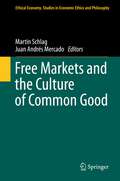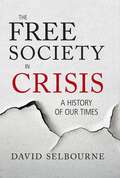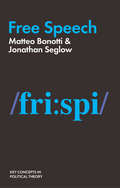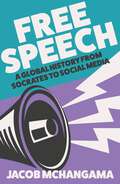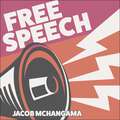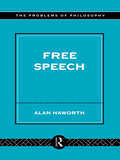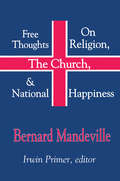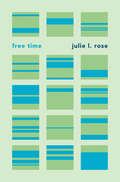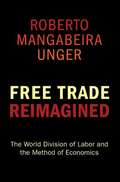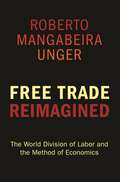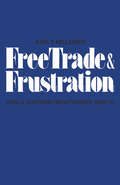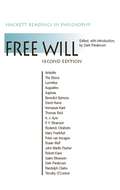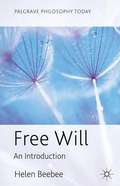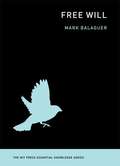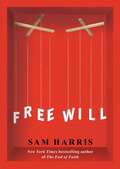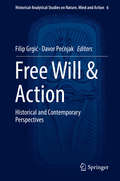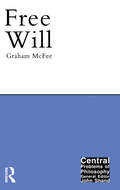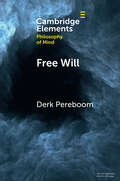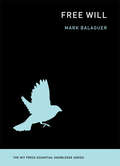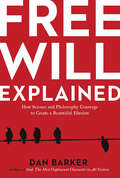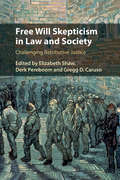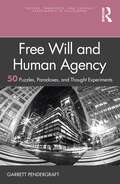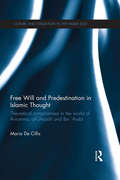- Table View
- List View
Free Markets and the Culture of Common Good
by Juan Andrés Mercado Martin SchlagRecent economic development and the financial and economic crisis require a change in our approach to business and finance. This book combines theology, economy and philosophy in order to examine in detail the idea that the functioning of a free market economy depends upon sound cultural and ethical foundations. The free market is a cultural achievement, not only an economic phenomenon subject to technical rules of trade and exchange. It is an achievement which lives by and depends upon the values and virtues shared by the majority of those who engage in economic activity. It is these values and virtues that we refer to as culture. Trust, credibility, loyalty, diligence, and entrepreneurship are the values inherent in commercial rules and law. But beyond law, there is also the need for ethical convictions and for global solidarity with developing countries. This book offers new ideas for future sustainable development and responds to an increasing need for a new sense of responsibility for the common good in societal institutions and good leadership.
Free Society in Crisis: A History of Our Times
by David SelbourneDescribed in a pre-publication review in the New York Times as "ambitious" and "exactly right to conclude that we need a practical renewal of the politics and ethics of the civic commonwealth," noted historian of ideas and political theorist David Selbourne takes his distance in The Free Society in Crisis from the routine thinking of right and left. Instead, he argues that free societies are under simultaneous threat from "market free choice" and "moral free choice", and sees them as two sides of the same coin. Market free choice gives free rein to market forces even when they create dangerous tensions between the haves and have-nots, and ride roughshod over communities and whole nations, while moral free choice privileges individual rights without any sense of civic responsibility and social consequence. The result of such individualism in economic and moral practice, whose history in recent decades Selbourne traces, is the malaise we find ourselves in today: a lost sense of place, identity and personal direction, as well as dismissiveness and ignorance of the lessons of the past.For today's liberty is not the freedom fought for in the French and American revolutions; it is instead the liberty of consumers and free-choosers. Reminding the reader of the aspirations and largely-forgotten writings of America's Founding Fathers, Selbourne shows how its first settlers' idea of a "true commonwealth" rested on "affections truly bent upon the common good". Today, as the democratic social order dissolves, and disapproval of the political class increases, he makes clear that liberty alone, however "progressive" it may be held to be, will not restore it, while there can be no "true commonwealth" where citizenship is seen as little more than a means of access to material benefits rather than a place of belonging. Moreover, if a civil society is to cohere, we must be citizens before we are Christians, Muslims, or Jews.
Free Speech (Key Concepts in Political Theory)
by Matteo Bonotti Jonathan SeglowFreedom of speech is never very far away from political controversy. In recent years, the rise of populism, the ‘cancel culture’ phenomenon, and online hate attacks are among the developments that have kept it at the forefront of both public and academic discussion. In this new introduction to the subject, Matteo Bonotti and Jonathan Seglow offer an accessible analysis of debates around freedom of speech. They introduce and critically examine three major philosophical arguments for freedom of speech that are based on the values of truth, autonomy, and democracy. They apply these arguments to issues including hate speech, offensive speech, and pornography, and also tackle pressing current issues such as ‘fake news’ and public shaming. This book will be essential for anyone wishing to understand the contemporary significance and philosophical roots of free speech, and how it relates to debates about democracy, feminism and multiculturalism.
Free Speech and Unfree News
by Sam LebovicDoes America have a free press? Many who say yes appeal to First Amendment protections against censorship. Sam Lebovic shows that free speech, on its own, is not sufficient to produce a free press and helps us understand the crises that beset the press amid media consolidation, a secretive national security state, and the daily newspaper's decline.
Free Speech: A Global History from Socrates to Social Media
by Jacob MchangamaA global history of free speech, from the ancient world to today.Hailed as the "first freedom," free speech is the bedrock of democracy. But it is a challenging principle, subject to erosion in times of upheaval. Today, in democracies and authoritarian states around the world, it is on the retreat.In Free Speech, Jacob Mchangama traces the riveting legal, political, and cultural history of this idea. Through captivating stories of free speech's many defenders - from the ancient Athenian orator Demosthenes and the ninth-century freethinker al-Razi, to Mary Wollstonecraft, Mahatma Gandhi, Nelson Mandela and modern-day digital activists - Mchangama demonstrates how the free exchange of ideas underlies all intellectual achievement and has enabled the advancement of both freedom and equality worldwide. Yet the desire to restrict speech is also a constant, and he explores how even its champions can be led down this path when the rise of new and contrarian voices challenge power and privilege of all kinds.Meticulously researched, deeply humane and provocative, Free Speech challenges us all to recognise how much we have gained from this principle - and how much we stand to lose without it.
Free Speech: A Global History from Socrates to Social Media
by Jacob MchangamaA global history of free speech, from the ancient world to today.Hailed as the "first freedom," free speech is the bedrock of democracy. But it is a challenging principle, subject to erosion in times of upheaval. Today, in democracies and authoritarian states around the world, it is on the retreat.In Free Speech, Jacob Mchangama traces the riveting legal, political, and cultural history of this idea. Through captivating stories of free speech's many defenders - from the ancient Athenian orator Demosthenes and the ninth-century freethinker al-Razi, to Mary Wollstonecraft, Mahatma Gandhi, Nelson Mandela and modern-day digital activists - Mchangama demonstrates how the free exchange of ideas underlies all intellectual achievement and has enabled the advancement of both freedom and equality worldwide. Yet the desire to restrict speech is also a constant, and he explores how even its champions can be led down this path when the rise of new and contrarian voices challenge power and privilege of all kinds.Meticulously researched, deeply humane and provocative, Free Speech challenges us all to recognise how much we have gained from this principle - and how much we stand to lose without it.(P) 2022 Hodder & Stoughton Limited
Free Speech: All That Matters Ebook (Problems of Philosophy)
by Alan HaworthFree Speech is a philosophical treatment of a topic which is of immense importance to all of us.Writing with great clarity, wit, and genuine concern, Alan Haworth situates the main arguments for free speech by tracing their relationship to contemporary debates in politics and political philosophy, and their historical roots to earlier controversies over religious toleration.Free Speech will appeal to anyone with an interest in philosophy, politics and current affairs.
Free Spirit: How You Can Get the Most Out of Life at Any Age-- and How It Might Make You a Millionaire
by Al Neuharth"Free spirit has created everything from better mousetraps to new nations. If you are a free spirit, or a wannabe, this book can help you get the most out of life at any age."
Free Thoughts on Religion, the Church, and National Happiness: By B. M (Scholars' Facsimiles And Reprints Ser.)
by Bernard MandevilleBernard Mandeville was best known for The Fable of the Bees, in which he demolishes the supposed moral basis of society by a Hobbesian demonstration that civilization depends on vice. Today Mandeville is seen as a trenchant satirist of the manners and foibles of his age. He is also seen as a precursor of some of Adam Smith's doctrines, a forerunner in the field of sociology. A prescient analyst of the dynamics of our modern consumer society, Mandeville is author of a striking naturalistic account of the gradual evolution of modern society from its primitive antecedents. His literary signature, in a manner of speaking, is his famous paradox, "private vices, public benefits." This new edition of Free Thoughts is prefaced by a lengthy and informative introduction by Irwin Primer, who recreates not only the literary, political, and religious atmosphere surrounding Mandeville, but also the controversies that surrounded his writing in mid-eighteenth-century England. Primer includes textual notes on the first and second editions of this classic work. To understand Mandeville's Free Thoughts, one needs to situate it within the context of the religious and political controversies, ongoing subversion, fear and dormant warfare of his times. Those would eventually erupt again and for the last time in the bloody Jacobite rebellion of 1745-46. The first five chapters of the book explore religious and theological issues including the nature of belief and knowledge, the significance of rites and ceremonies, and controversies about Christian mysteries such as the Trinity and free will and predestination. The next five chapters explore controversial issues of church politics, including persecution and toleration across the centuries, the basis of Mandeville's anticlericalism. In the eleventh chapter, he turns aside from matters of religion to review the balance of powers in Britain's government, a mixed or limited monarchy. The final chapter is essentially a repetition of Mandeville's pleas for civil and religious peace through mutual toleration by opposing religious parties. Mandeville's work is of continuing interest to students of culture and history, religion and theology, and political science. Irwin Primer is professor emeritus at Rutgers University who has written widely on Mandeville and the Scottish tradition in philosophy.
Free Time
by Julie L. RoseRecent debates about inequality have focused almost exclusively on the distribution of wealth and disparities in income, but little notice has been paid to the distribution of free time. Free time is commonly assumed to be a matter of personal preference, a good that one chooses to have more or less of. Even if there is unequal access to free time, the cause and solution are presumed to lie with the resources of income and wealth. In Free Time, Julie Rose argues that these views are fundamentally mistaken. First, Rose contends that free time is a resource, like money, that one needs in order to pursue chosen ends. Further, realizing a just distribution of income and wealth is not sufficient to ensure a fair distribution of free time. Because of this, anyone concerned with distributive justice must attend to the distribution of free time.On the basis of widely held liberal principles, Rose explains why citizens are entitled to free time--time not committed to meeting life's necessities and instead available for chosen pursuits. The novel argument that the just society must guarantee all citizens their fair share of free time provides principled grounds to address critical policy choices, including work hours regulations, Sunday closing laws, public support for caregiving, and the pursuit of economic growth. Delving into an original topic that touches everyone, Free Time demonstrates why all citizens have, in the words of early labor reformers, a right to "hours for what we will."
Free Trade Reimagined
by Roberto Mangabeira UngerFree Trade Reimagined begins with a sustained criticism of the heart of the emerging world economy, the theory and practice of free trade. Roberto Mangabeira Unger does not, however, defend protectionism against free trade. Instead, he attacks and revises the terms on which the traditional debate between free traders and protectionists has been joined. Unger's intervention in this major contemporary debate serves as a point of departure for a proposal to rethink the basic ideas with which we explain economic activity. He suggests, by example as well as by theory, a way of understanding contemporary economies that is both more realistic and more revealing of hidden possibilities for transformation than are the established forms of economics. One message of the book is that we need not choose between accepting and rejecting globalization; we can have a different globalization. Traditional free trade doctrine rests on shaky empirical and theoretical ground. Unger takes a new approach to show when international trade is likely to be useful or harmful to the socially inclusive economic growth that every nation wants. Another message is that the movement of people and ideas is more important than the movement of things and money, and that freedom to change the institutions defining a market economy is just as important as freedom to exchange goods on the basis of those institutions. Free Trade Reimagined ranges broadly within and outside economics. Presenting technical issues in plain language, it appeals to the general reader. It puts a disciplined imagination in the service of rebellion against the dictatorship of no alternatives that characterizes life and thought today.
Free Trade Reimagined: The World Division of Labor and the Method of Economics
by Roberto Mangabeira UngerFree Trade Reimagined begins with a sustained criticism of the heart of the emerging world economy, the theory and practice of free trade. Roberto Mangabeira Unger does not, however, defend protectionism against free trade. Instead, he attacks and revises the terms on which the traditional debate between free traders and protectionists has been joined. Unger's intervention in this major contemporary debate serves as a point of departure for a proposal to rethink the basic ideas with which we explain economic activity. He suggests, by example as well as by theory, a way of understanding contemporary economies that is both more realistic and more revealing of hidden possibilities for transformation than are the established forms of economics. One message of the book is that we need not choose between accepting and rejecting globalization; we can have a different globalization. Traditional free trade doctrine rests on shaky empirical and theoretical ground. Unger takes a new approach to show when international trade is likely to be useful or harmful to the socially inclusive economic growth that every nation wants. Another message is that the movement of people and ideas is more important than the movement of things and money, and that freedom to change the institutions defining a market economy is just as important as freedom to exchange goods on the basis of those institutions. Free Trade Reimagined ranges broadly within and outside economics. Presenting technical issues in plain language, it appeals to the general reader. It puts a disciplined imagination in the service of rebellion against the dictatorship of no alternatives that characterizes life and thought today.
Free Trade and Frustration: Anglo-Austrian Negotiations 1860-70
by Karl HelleinerThree treaties were signed between Britain and Austria in the decade of the 1860s, as British businessmen and diplomats tried to spread to gospel of Free Trade amid the protectionist gloom. Britain's patient endeavours to convert other nations to the policy of Free Trade were made in the hopes of advancing economic liberalism and furthering the trend towards free exchanges and international divisions of labour, a development which, it was hoped, would prove conducive to worldwide economic growth and amity among nations. But all of Britain's efforts were met with dogged resistance. This work is a model monograph, derived largely from hitherto untapped primary sources (the Austrian State archives and the Public Record Office in London). In narrating the history of these parleys and negotiations it sheds light on European commercial diplomacy a century ago, when the British system began to be rebuffed by other European nations; it also reveals the personal influences underlying shifts in imperial and imperialist policies.
Free Will
by Derk PereboomA unique anthology featuring contributions to the dispute over free will from Aristotle to the twenty-first century, Derk Pereboom's volume presents the most thoughtful positions taken in this crucial debate and discusses their consequences for free will's traditional corollary, moral responsibility.The Second Edition retains the organizational structure that made its predecessor the leading anthology of its kind, while adding major new selections by such philosophers as Spinoza, Reid, John Martin Fischer, Robert Kane, Galen Strawson, and Timothy O'Connor.Hackett Readings in Philosophy is a versatile series of compact anthologies, each devoted to a topic of traditional interest. Selections include classical, modern, and contemporary writings chosen for their elegance of exposition and success at stimulating thought and discussion.
Free Will
by Helen BeebeeThis comprehensive introductory guide includes discussion of the major contemporary positions on compatibilism and incompatibilism, and of the central arguments that are a focus of the current debate, including the Consequence Argument, manipulation arguments, and Frankfurt's famous argument against the 'Principle of Alternate Possibilities.
Free Will
by Mark BalaguerIn our daily life, it really seems as though we have free will, that what we do from moment to moment is determined by conscious decisions that we freely make. You get up from the couch, you go for a walk, you eat chocolate ice cream. It seems that we're in control of actions like these; if we are, then we have free will. But in recent years, some have argued that free will is an illusion. The neuroscientist (and best-selling author) Sam Harris and the late Harvard psychologist Daniel Wegner, for example, claim that certain scientific findings disprove free will. In this engaging and accessible volume in the Essential Knowledge series, the philosopher Mark Balaguer examines the various arguments and experiments that have been cited to support the claim that human beings don't have free will. He finds them to be overstated and misguided.Balaguer discusses determinism, the view that every physical event is predetermined, or completely caused by prior events. He describes several philosophical and scientific arguments against free will, including one based on Benjamin Libet's famous neuroscientific experiments, which allegedly show that our conscious decisions are caused by neural events that occur before we choose. He considers various religious and philosophical views, including the philosophical pro-free-will view known as compatibilism. Balaguer concludes that the anti-free-will arguments put forward by philosophers, psychologists, and neuroscientists simply don't work. They don't provide any good reason to doubt the existence of free will. But, he cautions, this doesn't necessarily mean that we have free will. The question of whether we have free will remains an open one; we simply don't know enough about the brain to answer it definitively.
Free Will
by Sam HarrisFrom the New York Times bestselling author of The End of Faith, a thought-provoking, "brilliant and witty" (Oliver Sacks) look at the notion of free will—and the implications that it is an illusion.A belief in free will touches nearly everything that human beings value. It is difficult to think about law, politics, religion, public policy, intimate relationships, morality—as well as feelings of remorse or personal achievement—without first imagining that every person is the true source of his or her thoughts and actions. And yet the facts tell us that free will is an illusion. In this enlightening book, Sam Harris argues that this truth about the human mind does not undermine morality or diminish the importance of social and political freedom, but it can and should change the way we think about some of the most important questions in life.
Free Will & Action: Historical and Contemporary Perspectives (Historical-Analytical Studies on Nature, Mind and Action #6)
by Filip Grgić Davor PećnjakThis book consists of eleven new essays that provide new insights into classical and contemporary issues surrounding free will and human agency. They investigate topics such as the nature of practical knowledge and its role in intentional action; mental content and explanations of action; recent arguments for libertarianism; the situationist challenge to free will; freedom and a theory of narrative configuration; the moral responsibility of the psychopath; and free will and the indeterminism of quantum mechanics. Also tackling some historical precursors of contemporary debates, taken together these essays demonstrate the need for an approach that recognizes the multifaceted nature of free will. This book provides essential reading for anyone interested in the current scholarship on free will.
Free Will (Central Problems Of Philosophy Ser. #1)
by Graham McFeeThe question whether human choices and actions are causally determined or are in a way free, and the implications of this for our moral, personal and social lives continues to challenge philosophers. This book explores the determinist rejection of free will through a detailed exposition of the central determinist argument and a consideration of the responses to each of its premises. At every stage familiar examples and case studies help frame and ground the argument. The discussion is at no time peremptory and the invitation to the reader to be drawn in and to contribute to the debate as an engaged participant is palpable in the manner and approach adopted throughout. "Free Will" will be welcomed by students looking for an engaging and clear introduction to the subject, and as a rigorous exercise in philosophical argument it will serve, for the beginning student new to philosophy, as an excellent springboard into the subject more generally.
Free Will (Elements in Philosophy of Mind)
by Derk PereboomThis Element provides a thorough overview of the free will debate as it currently stands. After distinguishing the main senses of the term 'free will' invoked in that debate, it proceeds to set out the prominent versions of the main positions, libertarianism, compatibilism, and free will skepticism, and then to discuss the main objections to these views. Particular attention is devoted to the controversy concerning whether the ability to do otherwise is required for moral responsibility and whether it is compatible with determinism, and to manipulation arguments against compatibilism. Two areas in which the free will debate has practical implications are discussed in detail, personal relationships and criminal justice.
Free Will (The MIT Press Essential Knowledge Series)
by Mark BalaguerA philosopher considers whether the scientific and philosophical arguments against free will are reason enough to give up our belief in it. In our daily life, it really seems as though we have free will, that what we do from moment to moment is determined by conscious decisions that we freely make. You get up from the couch, you go for a walk, you eat chocolate ice cream. It seems that we're in control of actions like these; if we are, then we have free will. But in recent years, some have argued that free will is an illusion. The neuroscientist (and best-selling author) Sam Harris and the late Harvard psychologist Daniel Wegner, for example, claim that certain scientific findings disprove free will. In this engaging and accessible volume in the Essential Knowledge series, the philosopher Mark Balaguer examines the various arguments and experiments that have been cited to support the claim that human beings don't have free will. He finds them to be overstated and misguided. Balaguer discusses determinism, the view that every physical event is predetermined, or completely caused by prior events. He describes several philosophical and scientific arguments against free will, including one based on Benjamin Libet's famous neuroscientific experiments, which allegedly show that our conscious decisions are caused by neural events that occur before we choose. He considers various religious and philosophical views, including the philosophical pro-free-will view known as compatibilism. Balaguer concludes that the anti-free-will arguments put forward by philosophers, psychologists, and neuroscientists simply don't work. They don't provide any good reason to doubt the existence of free will. But, he cautions, this doesn't necessarily mean that we have free will. The question of whether we have free will remains an open one; we simply don't know enough about the brain to answer it definitively.
Free Will Explained: How Science and Philosophy Converge to Create a Beautiful Illusion
by Dan BarkerA compelling essay on free will from an internationally recognized authority on atheism, and author of God: The Most Unpleasant Character in All Fiction. Do we have free will? And if we don&’t, why do we feel as if we do? In a godless universe governed by impersonal laws of cause and effect, are you responsible for your actions? Former evangelical minister Dan Barker (God: The Most Unpleasant Character in All Fiction) unveils a novel solution to the question that has baffled scientists and philosophers for millennia. He outlines the concept of what he calls &“harmonic free will,&” a two-dimensional perspective that pivots the paradox on its axis to show that there is no single answer—both sides are right. Free will is a useful illusion: not a scientific, but a social truth.
Free Will Skepticism in Law and Society: Challenging Retributive Justice
by Elizabeth Shaw Derk Pereboom Gregg D. Caruso'Free will skepticism' refers to a family of views that all take seriously the possibility that human beings lack the control in action - i.e. the free will - required for an agent to be truly deserving of blame and praise, punishment and reward. Critics fear that adopting this view would have harmful consequences for our interpersonal relationships, society, morality, meaning, and laws. Optimistic free will skeptics, on the other hand, respond by arguing that life without free will and so-called basic desert moral responsibility would not be harmful in these ways, and might even be beneficial. This collection addresses the practical implications of free will skepticism for law and society. It contains eleven original essays that provide alternatives to retributive punishment, explore what (if any) changes are needed for the criminal justice system, and ask whether we should be optimistic or pessimistic about the real-world implications of free will skepticism.
Free Will and Human Agency: 50 Puzzles, Paradoxes, and Thought Experiments (Puzzles, Paradoxes, and Thought Experiments in Philosophy)
by Garrett PendergraftIn this new kind of entrée to contemporary discussions of free will and human agency, Garrett Pendergraft collects and illuminates 50 of the most relevant puzzles, paradoxes, and thought experiments. Assuming no familiarity with the philosophical literature on free will, each chapter describes a case, explains the questions that it raises, briefly summarizes some of the key responses to the case, and provides a list of suggested readings. Every chapter is accessible, succinct, and self-contained. The puzzles are divided into five broad categories: the threat from fatalism, the threat from determinism, practical reason, social dimensions, and moral luck. Entries cover topics such as the grandfather paradox, theological fatalism, the consequence argument, manipulation arguments, luck arguments, weakness of will, action explanation, addiction, blame and punishment, situationism in moral psychology, and Huckleberry Finn. Free Will and Human Agency is an effective and engaging teaching tool as well as a handy resource for anyone interested in exploring the questions that have made human agency a topic of perennial philosophical interest. Key Features: Though concise overall, offers broad coverage of the key areas of free will and human agency. Describes each imaginative case directly and in a memorable way, making the cases accessible and easy to remember. Provides a list of suggested readings for each case.
Free Will and Predestination in Islamic Thought: Theoretical Compromises in the Works of Avicenna, al-Ghazali and Ibn 'Arabi (Culture and Civilization in the Middle East)
by Maria De CillisThe subject of "human free-will" versus "divine predestination" is one of the most contentious topics in classical Islamic thought. By focusing on a theme of central importance to any philosophy of religion, and to Islam in particular, this book offers a critical study of the intellectual contributions offered to this discourse by three key medieval Islamic thinkers: Avicenna, al-Ghāzālī and Ibn ʿArabī. Through investigation of primary sources, Free Will and Predestination in Islamic Thought establishes the historical, political and intellectual circumstances which prompted Avicenna, al-Ghāzālī and Ibn ʿArabī’s attempts at harmonization. By analysing the theoretical and linguistic ‘techniques’ which were employed to convey these endeavours, this book demonstrates that the three individuals were committed to compromise between philosophical, theological and mystical outlooks. Arguing that the three scholars’ treatments of the so-called qaḍā wa’l-qadar (decree and destiny) and ikhtiyār (free-will) issues were innovative, influential and fundamentally more complex than hitherto recognized, this book contributes to a fuller understanding of Islamic intellectual history and culture and will be useful to researchers interested in Islamic Studies, Religion and Islamic Mysticism.
